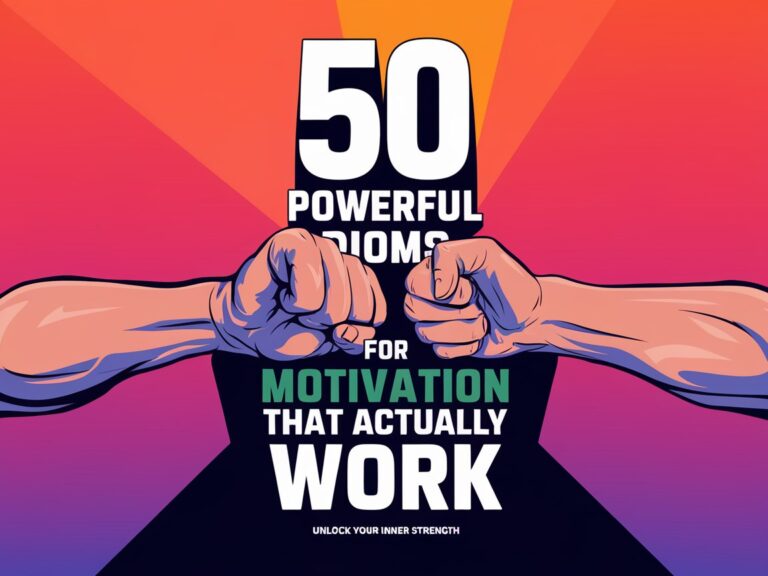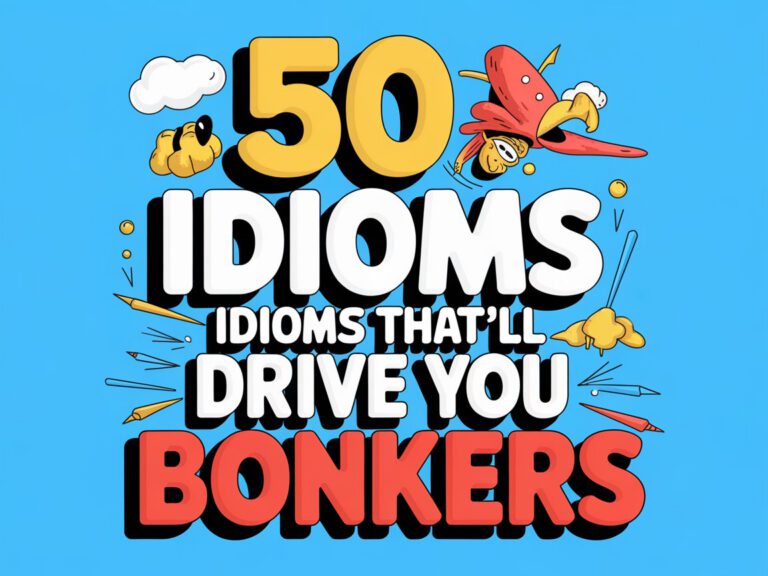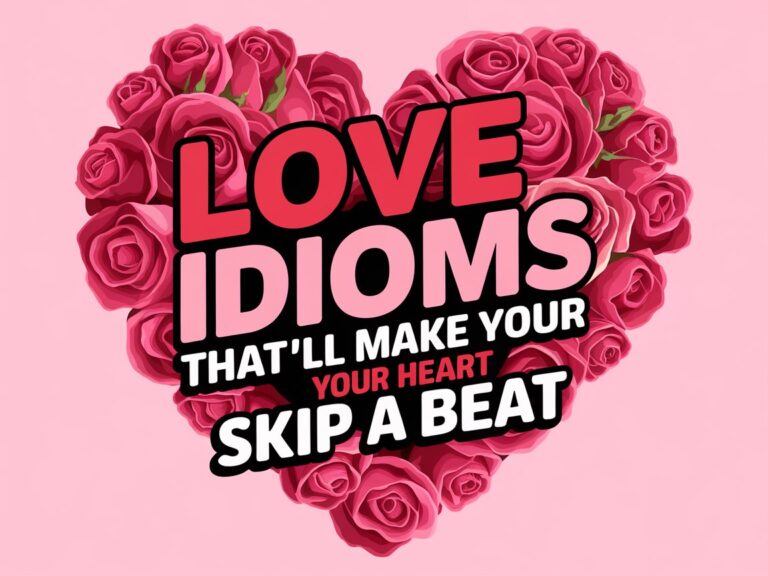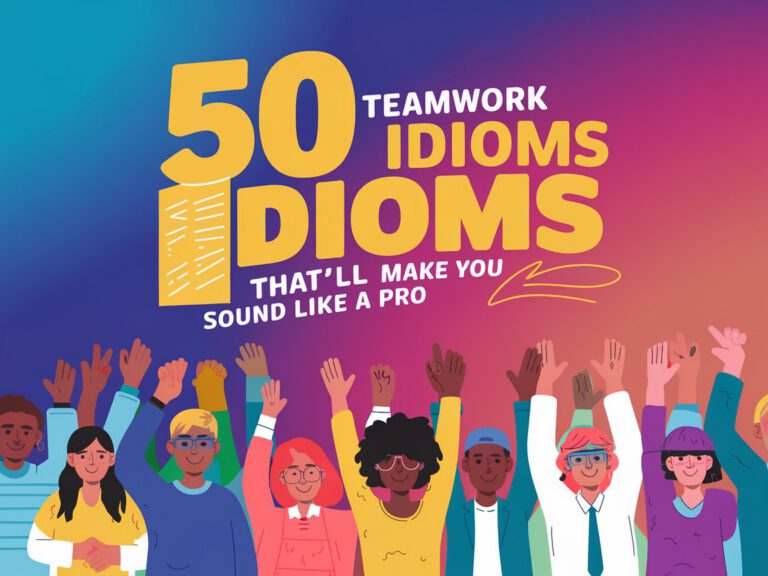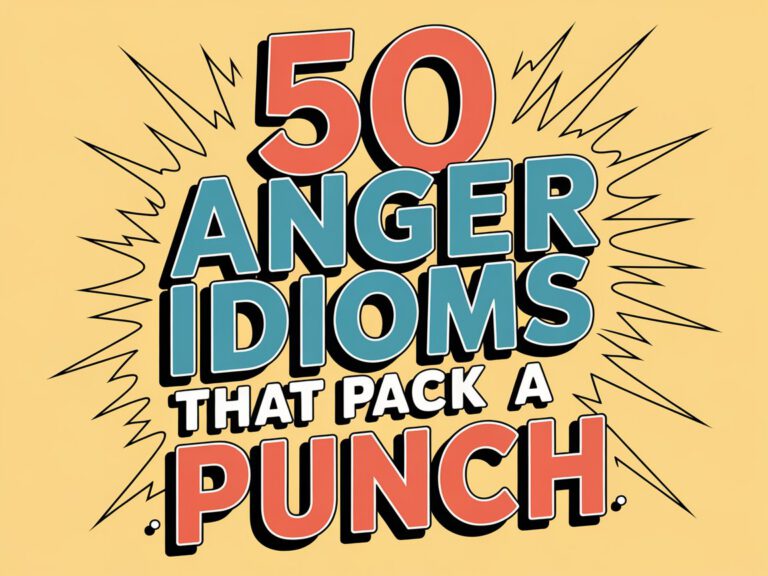50 Idioms About Fake Friends: Spot the Snakes in Your Circle
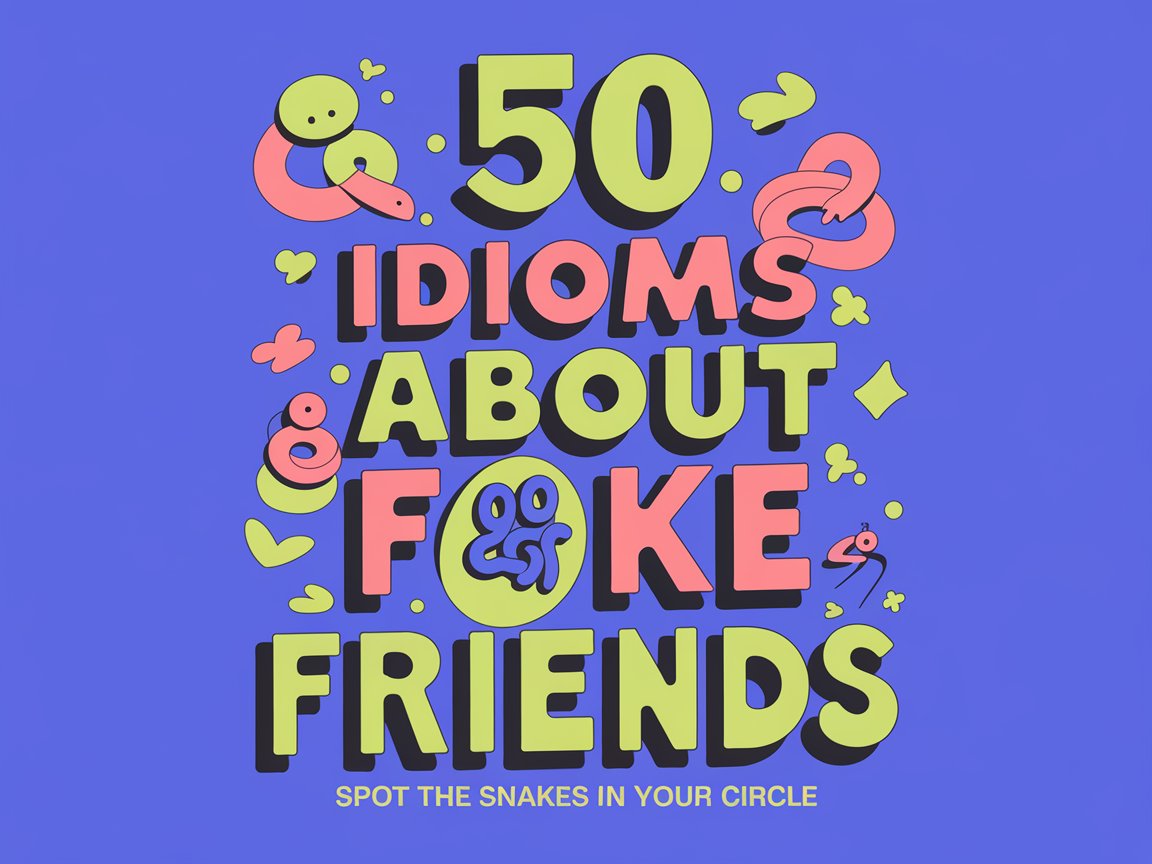
We’ve all been there – thinking we had a solid friendship, only to discover that person was about as real as a three-dollar bill. Fake friends are everywhere, and lucky for us, the English language has created some pretty colorful ways to describe these backstabbing buddies. From ancient proverbs to modern slang, these 50 idioms will help you spot the wolves in sheep’s clothing before they bite.
The Psychology Behind Fake Friendships
According to research from the American Psychological Association, 61% of adults view having close friends as extremely important for a fulfilling life, making genuine friendships more valued than marriage or wealth. However, psychologist Dr. Robin Dunbar’s research suggests that humans can only maintain about 150 stable relationships at once, which means we need to be selective about who gets our trust.
| Friendship Reality Check | Statistics |
|---|---|
| Adults who value close friendships | 61% |
| Average number of close friends | 3-5 |
| Time it takes to form a close friendship | 200+ hours |
| Percentage of people who’ve experienced betrayal | 75% |
| Impact of toxic friendships on mental health | 40% increase in stress |
The Classic Backstabbers
1. Wolf in Sheep’s Clothing
This one’s older than your grandma’s apple pie recipe. When someone looks harmless but has hidden dangerous intentions, they’re a wolf in sheep’s clothing. Think of that sweet coworker who smiles at your face but spreads office gossip faster than wildfire.
Pro-Tip: Trust your gut feelings. If something feels off about someone’s overly sweet behavior, it probably is.
2. Stab You in the Back
Nothing hurts quite like a friend who stabs you in the back. This idiom perfectly captures that awful feeling when someone you trusted betrays you behind your back. It’s like getting sucker-punched by someone you thought had your back.
3. Snake in the Grass
Snakes are sneaky, and so are fake friends. A snake in the grass is someone who pretends to be harmless while secretly plotting against you. They’re the friend who remembers every embarrassing story you’ve told them – and uses it against you later.
4. Two-Faced
Some people have more faces than a theater mask collection. Two-faced friends are sweet as pie to your face but turn into complete sharks the moment you leave the room. They’re basically friendship chameleons, but not in a good way.
5. Throw You Under the Bus
When push comes to shove, these “friends” will sacrifice you faster than you can say “loyalty.” They’ll throw you under the bus to save their own skin, even if it means completely destroying your reputation or feelings.
The Fair-Weather Phonies
6. Fair-Weather Friend
These friends are like umbrellas in a hurricane – completely useless when you actually need them. Fair-weather friends only stick around when life’s all sunshine and rainbows. The moment storm clouds appear, they vanish faster than free pizza at a college dorm.
7. Friend in Name Only
Some people wear the title “friend” like a cheap costume. A friend in name only calls you their buddy but never actually acts like one. They’re all talk and no walk, like a car that looks fancy but won’t start.
8. All Talk and No Action
Speaking of all talk, these friends promise you the moon but deliver absolutely nothing. They’re the ones who say they’ll help you move but somehow always have “something come up” on moving day.
Pro-Tip: Pay attention to patterns. If someone consistently makes promises they don’t keep, that’s a red flag bigger than a billboard.
9. Blow Hot and Cold
These friends are like a broken thermostat – you never know what temperature you’re going to get. One day they’re your best buddy, the next day they’re giving you the cold shoulder. It’s emotional whiplash at its finest.
10. Frenemy
This modern term perfectly captures those relationships that are part friendship, part warfare. Frenemies are the people who compete with you disguised as support. They’re happy for your success, but only to a point.
The Gossip Gang
11. Talk Behind Your Back
Some friends treat your personal life like their favorite TV show – they can’t wait to discuss it with everyone else. These backstabbing buddies collect your secrets like trading cards and share them just as freely.
12. Throw Shade
When someone throws shade, they’re not offering you protection from the sun. They’re making subtle digs and indirect insults that sting worse than a wasp. It’s passive-aggressive behavior wrapped in a smile.
13. Spill the Tea
While this phrase can be harmless gossip, fake friends use it as a weapon. They’ll spill your tea (share your business) with anyone who’ll listen, turning your private moments into public entertainment.
14. Spread Like Wildfire
Bad news about you spreads like wildfire when fake friends are involved. They’re basically human megaphones for anything embarrassing or damaging about your life.
15. Whisper Campaign
Some fake friends are subtle about their betrayal. They conduct whisper campaigns, slowly poisoning other people’s opinions of you through carefully planted seeds of doubt and negativity.
The Manipulative Masters
16. Butter Wouldn’t Melt in Their Mouth
These friends look so innocent, you’d think butter wouldn’t melt in their mouth. But don’t be fooled – they’re often the most dangerous because nobody suspects them of any wrongdoing.
17. Put on a Front
Some friends are better actors than Hollywood stars. They put on a front of caring and loyalty while secretly working against your best interests. It’s like being friends with a really convincing robot.
18. Hidden Agenda
These friends always have hidden agendas. They’re not interested in genuine friendship – they want something from you, whether it’s connections, money, or just someone to make themselves feel better by comparison.
Pro-Tip: If someone only contacts you when they need something, that’s not friendship – that’s a transaction.
19. Crocodile Tears
When fake friends shed crocodile tears, they’re putting on a show. Their sympathy is about as genuine as a unicorn sighting. They’re crying, but not for the reasons you think.
20. Keep Your Friends Close and Your Enemies Closer
Sometimes the best strategy with fake friends is to keep them close so you can monitor their moves. It’s like playing chess with someone who cheats – you need to watch their every move.
The Competitive Cutthroats
21. Green-Eyed Monster
Jealousy turns some friends into green-eyed monsters. They can’t stand to see you succeed and will do whatever it takes to bring you down to their level. Success is not something they want to celebrate with you.
22. Cutthroat
These friends are cutthroat competitors disguised as supporters. They’ll smile while they’re actively working to undermine your success. Competition is healthy, but not when it comes with a knife in your back.
23. Frenemy Territory
When friendship crosses into frenemy territory, every interaction becomes a battle. They’re keeping score of who’s winning in life, and they’re not interested in both of you succeeding.
24. Jealous Streak
Some friends have a jealous streak wider than the Grand Canyon. They can’t genuinely be happy for your wins because they’re too busy calculating how your success makes them look bad.
25. Bad Sport
These friends are bad sports about everything. Win or lose, they find ways to make it about them. Your victory becomes their defeat, and they’re not gracious about either.
The Loyalty Breakers
26. Turncoat
A turncoat friend changes sides faster than a weather vane in a tornado. One minute they’re on your team, the next minute they’re giving your playbook to the opposition.
27. Sell You Out
For the right price (or sometimes just the right gossip), these friends will sell you out. Your secrets, your trust, your friendship – it’s all for sale to the highest bidder.
28. Bite the Hand That Feeds You
Some friends bite the hand that feeds them. You help them, support them, and lift them up, and they repay your kindness with betrayal. It’s like nursing a snake back to health only to get bitten.
29. Burn Bridges
When fake friends burn bridges, they’re not just ending the friendship – they’re destroying it completely. There’s no coming back from this level of betrayal.
30. Jump Ship
These friends jump ship the moment things get tough. They’re like rats fleeing a sinking ship, except the ship isn’t actually sinking – they just think it might be.
The Two-Timer Troublemakers
31. Talk Out of Both Sides of Their Mouth
These friends are like human contradictions. They tell you one thing and everyone else something completely different. It’s like they have a different personality for every person they meet.
32. Play Both Sides
Some friends try to play both sides of every conflict. They’re your friend and your enemy’s friend, trying to benefit from both relationships while being loyal to neither.
33. Double Agent
These friends are double agents in your social circle. They’re collecting information from your camp to use in someone else’s, all while pretending to be on your side.
34. Flip-Flopper
Like a fish out of water, these friends can’t stick to one position. They flip-flop on their loyalty, their opinions, and their support depending on what benefits them most at the moment.
35. Wishy-Washy
Wishy-washy friends are about as reliable as a chocolate teapot. They can’t make up their minds about anything, including whether they actually want to be your friend.
The Drama Creators
36. Stirring the Pot
Some friends love stirring the pot more than a professional chef. They create drama and conflict wherever they go, then sit back and watch the chaos unfold like it’s their personal entertainment.
37. Add Fuel to the Fire
When there’s already tension or conflict, these friends add fuel to the fire. Instead of helping resolve problems, they make everything worse for their own amusement.
38. Rock the Boat
These friends love to rock the boat just to see who falls overboard. They disturb the peace and harmony of your friend group for no good reason other than boredom.
39. Make Mountains Out of Molehills
Every small issue becomes a major crisis with these friends. They make mountains out of molehills, turning minor disagreements into friendship-ending battles.
40. Drama Queen/King
Some friends are natural-born drama queens or kings. Everything in their life is a crisis, and they expect you to drop everything to deal with their latest catastrophe.
The Trust Destroyers
41. Break Your Trust
When friends break your trust, they’re not just breaking a promise – they’re breaking a piece of your heart. Trust is like a mirror; once it’s broken, it’s never quite the same.
42. Betray Your Confidence
These friends betray your confidence faster than you can say “keep it between us.” Your secrets are safe with them like water is safe in a colander.
43. Violate Your Privacy
Some friends have no respect for boundaries. They violate your privacy by sharing your personal business with anyone who’ll listen, turning your private life into public property.
44. Abuse Your Trust
Trust is a precious gift, and these friends abuse it like it’s worthless. They take advantage of your faith in them to hurt you in ways that cut deeper than any enemy ever could.
45. Take You for Granted
These friends take you for granted like you’re a piece of furniture. They expect your loyalty, support, and friendship without giving anything meaningful in return.
The Ultimate Betrayers
46. Judas Kiss
Named after the biblical betrayer, a Judas kiss is when someone shows affection while simultaneously betraying you. It’s the ultimate act of fake friendship – destroying you with a smile.
47. Stab You in the Front
While most backstabbers attack from behind, some are bold enough to stab you in the front. They betray you openly, without even trying to hide their treachery.
48. Nail in the Coffin
When a fake friend delivers the nail in the coffin, they’re not just ending the friendship – they’re making sure it can never be resurrected. It’s the final, fatal blow to any remaining trust.
49. Twist the Knife
After betraying you, these friends twist the knife by making the situation even worse. They don’t just hurt you once – they keep hurting you to maximize the damage.
50. Salt in the Wound
The ultimate insult from a fake friend is rubbing salt in the wound. They hurt you, then make it worse by adding insult to injury. It’s like getting kicked while you’re already down.
Pro-Tip: Remember that recognizing these behaviors isn’t about becoming cynical – it’s about protecting your emotional well-being and investing in relationships that truly matter.
How to Spot Fake Friends Before They Strike
Learning these idioms isn’t just about expanding your vocabulary – it’s about protecting yourself from toxic relationships. Here are some warning signs to watch for:
The Consistency Test: Real friends are consistent in their behavior and treatment of you. If someone’s attitude toward you changes based on who else is around, that’s a red flag.
The Crisis Check: Pay attention to who shows up when you’re going through tough times. Fair-weather friends disappear when storm clouds gather.
The Reciprocity Rule: Healthy friendships involve give and take. If you’re always the one giving (time, energy, support) without receiving anything in return, you might be dealing with a user.
The Gossip Gauge: If someone gossips to you about other friends, they’re probably gossiping about you to others. Real friends don’t traffic in other people’s business.
The Loyalty Litmus Test: Watch how they treat other friends. If they’re quick to turn on others, they’ll eventually turn on you too.
The Psychology of Fake Friendships
Understanding why people become fake friends can help you identify and avoid them. According to psychological research, fake friends often stem from:
Insecurity: Many fake friends are deeply insecure and use manipulation to feel better about themselves.
Narcissism: Some people see friends as tools for their own advancement rather than genuine relationships.
Competition: In our success-driven society, some people view friendships as competitive rather than collaborative.
Lack of Empathy: Fake friends often struggle with genuine empathy, making it easy for them to hurt others.
Learned Behavior: Some people learned manipulative friendship patterns from their family or early social experiences.
Building Your Defense Against Fake Friends
Now that you know how to identify fake friends, here’s how to protect yourself:
Trust Your Instincts: If something feels off about a friendship, it probably is. Your gut reactions are usually right.
Set Boundaries: Clear boundaries help weed out people who don’t respect you. Real friends will respect your limits.
Quality Over Quantity: It’s better to have a few genuine friends than a large group of fake ones.
Don’t Overshare Too Quickly: Take time to build trust before sharing your deepest secrets.
Observe Actions, Not Words: Actions speak louder than words. Pay attention to what people do, not just what they say.
Build a Support Network: Having multiple sources of support makes you less vulnerable to manipulation from any single person.
The Silver Lining of Fake Friends
Believe it or not, fake friends can actually serve a purpose in your life:
They Teach You Discernment: Learning to identify fake friends helps you appreciate real ones.
They Build Resilience: Surviving fake friendships makes you stronger and more self-reliant.
They Clarify Your Values: Dealing with fake friends helps you understand what you truly value in relationships.
They Motivate Growth: Sometimes fake friends push you to become more independent and confident.
They Provide Contrast: Experiencing fake friendship makes genuine friendship feel even more precious.
Frequently Asked Questions
What’s the difference between a fake friend and someone who’s just not that close to you? A fake friend actively deceives or betrays you, while someone who’s not close simply maintains appropriate boundaries. Fake friends pretend to be closer than they are and often have hidden agendas.
Can fake friends change and become real friends? While people can change, it’s rare for truly fake friends to transform into genuine ones. The patterns of manipulation and betrayal are usually too deeply ingrained. It’s often better to invest your energy in new, healthier relationships.
How do I confront a fake friend? Direct confrontation rarely works with fake friends because they’re skilled at manipulation. Instead, gradually distance yourself and invest in relationships with people who demonstrate genuine care and loyalty.
Is it normal to have mostly fake friends? If you find yourself surrounded by fake friends, it might be worth examining your own patterns. Are you attracted to dramatic or manipulative people? Do you struggle with boundaries? Sometimes we unconsciously attract what we’re familiar with.
How can I tell if I’m being a fake friend to others? Self-reflection is key. Ask yourself: Am I genuinely happy for my friends’ successes? Do I gossip about them? Am I there for them during tough times? Do I respect their boundaries and privacy? Honest answers will reveal areas for improvement.
Moving Forward: Building Genuine Connections
After learning about fake friends, you might feel tempted to build walls around yourself. Don’t let bad experiences rob you of the joy of genuine friendship. Instead, use these lessons to become better at choosing and being a real friend.
Real friendship is like a garden – it needs time, attention, and care to flourish. It’s not always easy, but it’s always worth it. When you find genuine friends who stick by you through thick and thin, celebrate them. They’re rarer than diamonds and more valuable than gold.
Remember, every fake friend you encounter is actually doing you a favor – they’re showing you exactly what you don’t want in a relationship. They’re like a GPS for your social life, redirecting you away from toxic connections toward healthier ones.
The goal isn’t to become cynical or suspicious of everyone you meet. It’s to develop the wisdom to recognize red flags while keeping your heart open to genuine connections. After all, the best defense against fake friends is surrounding yourself with real ones.
Conclusion
These 50 idioms about fake friends aren’t just colorful expressions – they’re survival tools for navigating the complex world of human relationships. From wolves in sheep’s clothing to snakes in the grass, these phrases capture the many ways people can disappoint and betray us.
But here’s the thing: knowing these idioms doesn’t make you pessimistic – it makes you prepared. You’re not being negative by recognizing fake friends; you’re being smart. You’re protecting your emotional investment for the people who truly deserve it.
The most important lesson from all these idioms is this: genuine friendship is precious because it’s rare. When you find friends who would never throw you under the bus, who stick with you through thick and thin, and who celebrate your successes without jealousy, hold onto them tight. They’re the real treasure in this world of fake gold.
Life’s too short to waste on people who don’t value you. Use these idioms not as weapons against others, but as shields for yourself. Trust your instincts, set healthy boundaries, and never settle for friendship that leaves you feeling worse about yourself.
In a world full of fake friends, be the genuine article. Be the friend you wish you had, and you’ll attract the same energy back to you. After all, like attracts like – and genuine people have a way of finding each other in this crazy world.
Helpful Resources
- https://www.apa.org/monitor/2023/06/cover-story-science-friendship
- https://www.mayoclinic.org/healthy-lifestyle/adult-health/in-depth/friendships/art-20044860
- https://www.scmp.com/yp/discover/lifestyle/article/3202358/10-english-idioms-about-betrayal-and-choosing-trustworthy-friends-stick-you-through-thick-and-thin
- https://idiominsider.com/idioms-about-fake-friends/
- https://www.kutestkids.com/blog/friendship-statistics
- https://www.verywellmind.com/signs-of-a-fake-friend-7775483

